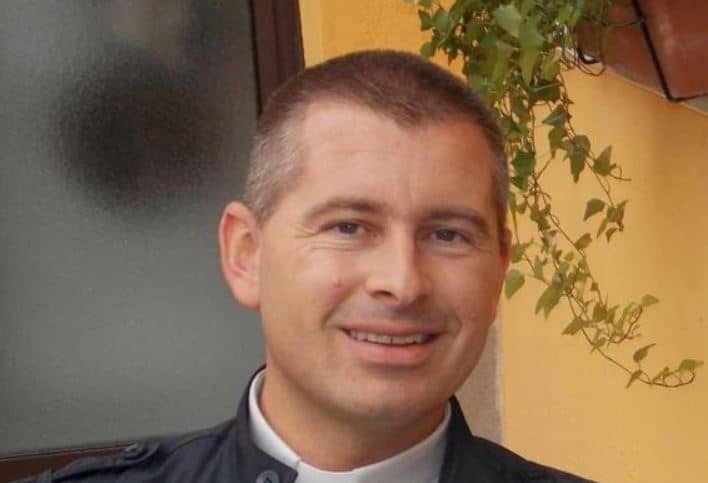WARSAW, Poland — Catholic representatives in Belarus said they were not invited to talks between Vatican and government officials and criticized a “lack of information” about the fate of their exiled bishops’ conference president.
“Unfortunately, we have absolutely no information about what’s happening and still await word from Rome about what was discussed,” said Father Yuri Sanko, spokesman for the Belarusian bishops’ conference.
“We weren’t included and know only what was reported in the media. Our one priority now is to secure our archbishop’s restitution as soon as possible.”
Belarusian Archbishop Tadeusz Kondrusiewicz of Minsk, conference president, was barred from reentering the country from Poland Aug. 31. The previous weekend, he had a statement read in Belarusian churches warning that the country could be on the brink of civil war because of streets protests and violence after the Aug. 9 presidential election. President Alexander Lukashenko declared himself the winner for a sixth term in the widely disputed election.
Archbishop Paul Gallagher, Vatican foreign minister, visited Minsk Sept. 11-14 for talks with Lukashenko’s government.
Sanko told Catholic News Service Sept. 16 Gallagher had held “private meetings” with some of Belarus’ eight serving bishops, but had not divulged details of his government contacts.
Kaciaryna Laurynenka, a Catholic historian and media worker, told CNS local Catholics were disappointed that all information about the talks had come from government agencies.
“We all understand Archbishop Gallagher was here to conduct negotiations, which can’t be discussed loudly,” Laurynenka said. “But there’s much skepticism about the government’s motives and fears it’s just using the church for its own purposes. People here remember how the Vatican concentrated on links with states rather with local Catholics in its contacts with communist-bloc countries.”
Speaking Sept. 12, Belarusian Foreign Minister Vladimir Makei said talks with Gallagher had covered events since the election. He added that he had re-invited Pope Francis to visit the former Soviet republic in recognition of its “special relations of mutual understanding and trust” with the Holy See.
However, the foreign minister gave no information about the future of Kondrusiewicz.
On Sept. 15, the Belarusian Interior Ministry confirmed the archbishop’s passport had been canceled to prevent its “unjustified use,” but said his Belarusian citizenship remained valid.
Cardinal Pietro Parolin, Vatican secretary of state, told journalists in Rome Sept. 15 that the Holy See insisted to Belarus the archbishop “be allowed to return to his see and continue to be the guide of his flock, certainly reaffirming the role of the church, which is to be a promoter of dialogue, reconciliation and peace.” His remarks were reported by Avvenire, newspaper of the Italian bishops’ conference.
Laurynenka said the government’s reissue of an invitation to the pope indicated it had “very little regard” for the country’s Catholic community, adding that “the very suggestion the pope could come and meet with the authorities here is offensive.”
“The government has clearly used Archbishop Gallagher’s visit for its own agenda — this is how it’s viewed by active and informed Catholics, who fear it will damage the church’s moral authority. The church must maintain normal relations with the state, but it can’t if it’s being persecuted,” the historian added.















